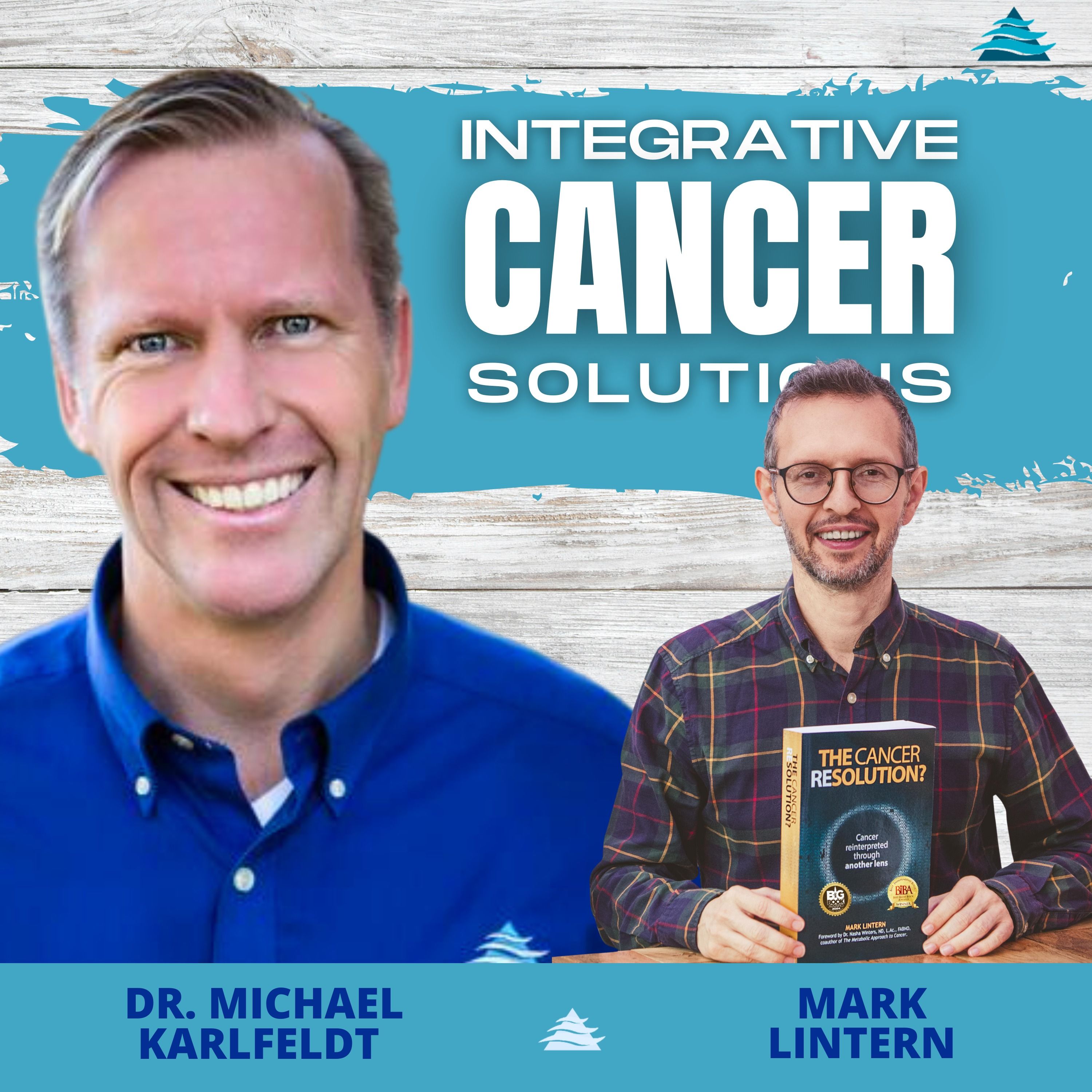Podcast Episode Details
Back to Podcast Episodes
Rethinking Cancer: Mark Lintern on Metabolic Theory, Fungal Pathogens, and The Cancer Resolution
Episode 252
On today's episode of Integrative Cancer Solutions Dr. Michael Karlfeldt is joined by Mark Lintern and Mark shares his journey into cancer research began with a personal diagnosis of soft tissue sarcoma at the age of 28, which propelled him to seek a deeper understanding of the disease. His initial confusion about the genetic causes of cancer led him to explore a variety of theories, especially after witnessing a friend’s battle with cervical cancer. These experiences fueled his passion for uncovering the root causes of cancer and inspired him to challenge conventional wisdom in the field. Throughout the conversation, Mark discusses several prevailing theories of cancer, including the somatic mutation theory, cancer stem cell theory, tissue organization field theory, atavistic theory, and viral theory. He emphasizes the importance of understanding these perspectives from a patient’s point of view, as they inform different treatment approaches.
Ultimately, Mark finds the metabolic theory most compelling, particularly the Warburg effect, which describes how cancer cells shift their energy production from oxidative phosphorylation to glycolysis. Mr. Lintern elaborates on the metabolic theory by explaining the critical role of mitochondria in cellular energy production and how their dysfunction leads to the Warburg effect. He introduces his own cell suppression theory, which posits that fungal pathogens can suppress mitochondrial function, thereby triggering the metabolic shift seen in cancer cells. This theory offers a new lens through which to view the hallmarks of cancer and suggests that targeting the underlying metabolic changes could be key to effective treatment.
The discussion then turns to the role of fungal pathogens in cancer and the potential for innovative treatment strategies. Mark highlights the cell danger response model, where mitochondria suppress energy production to combat pathogens, and discusses therapies such as hyperbaric oxygen, antifungal drugs, and dietary interventions. He also addresses the limitations of traditional treatments like chemotherapy and radiation, advocating for approaches that reduce inflammation, improve the microbiome, and support the immune system. In the final part of the episode, Mark offers practical recommendations for cancer prevention and treatment, including a plant-based diet rich in antimicrobial compounds, the use of medicinal mushrooms, and strategies to modulate the immune system.
Mark stresses the importance of personalized treatment plans that consider individual health profiles and the need for further research into the role of fungal pathogens in cancer. Mark concludes by sharing resources from his book, "The Cancer Resolution," and encourages listeners to keep an open mind and explore new avenues in cancer research.
- Mark Lintern shares his personal journey into cancer research after being diagnosed with soft tissue sarcoma at age 28, which led him to question conventional cancer theories.
- He explores and critiques various cancer theories, ultimately advocating for the metabolic theory and the Warburg effect as the most accurate explanations for cancer’s hallmarks.
- Mr. Lintern introduces the cell suppression theory, suggesting that fungal pathogens suppress mitochondrial function and drive the metabolic changes seen in cancer cells.
- The discussion covers innovative treatment strategies, including hyperbaric oxygen, antifungal therapies, dietary interventions, and the importance of reducing inflammation and supporting the microbiome.
- Mark emphasizes personalized, holistic approaches to cancer prevention and treatment, sharing insights from his book "The Cancer Resolution" and encouraging open-mindedness in cancer research.
Grab my book A Better Way to Treat Cancer: A Comprehensive Guide to Understanding, Preventing and Most Effectively Treating Our Biggest Health Threat - Published on 2 months ago